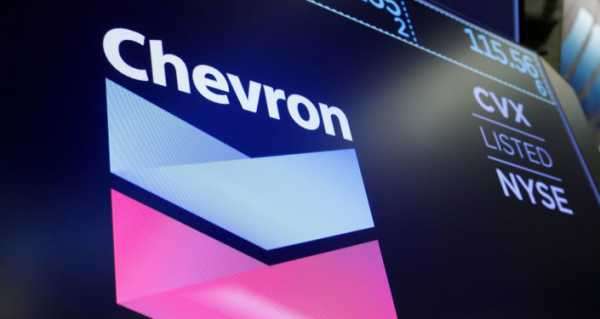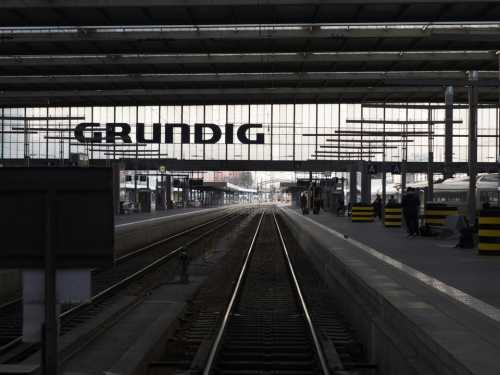
Exxon and Chevron’s shares nosedived in 2020 after the value of oil cratered amid fallout from the coronavirus outbreak, with Exxon’s stock hit hardest, prompting investors to raise concerns about the company’s long-term profitability and spending decisions.
ExxonMobil Corp and Chevron Corp reportedly engaged in talks at the outset of 2020 over the possibility of combining the two largest US oil producers to jointly weather the hardships plaguing energy markets, reported Reuters.
According to cited sources, the preliminary talks, now no longer active, had broached what would have potentially resulted in a huge merger, as the energy sector struggled to offset the crippling impact of the COVID-19 pandemic.

Logo of US oil and gas giant ExxonMobil
As efforts to stop the spread of the respiratory disease forced countries to install lockdown protocols and ground flights, the measures sent demand and crude prices plunging.
Talks between Exxon Chief Executive Darren Woods and Chevron CEO Mike Wirth had reportedly reached a stage when legal documents pertaining to certain aspects of the mulled merger were drafted, claimed sources, while stopping short of providing the reason for the talks eventually being aborted.

A general view of the Chevron Oil Refinery near Pembroke in west Wales
There has not been any official comment from Exxon and Chevron, who boast market capitalisations of $190 billion and $164 billion, respectively.
The shares of Exxon and Chevron nosedived last year, pummelled by fallout from the pandemic that decimated oil prices amid plunging demand.
Prices also collapsed in March 2020 after Russia and Saudi Arabia failed to agree whether or not to expand cuts beyond previously agreed-upon levels amid the economic downturn. As Russia hesitated, Riyadh turned on the taps to flood the market, filling importers’ reserves to the brim.

Oil storage tank
Exxon’s stock, which was hit the hardest, is believed to have led investors to voice concerns over the Texas-headquartered company’s long-term profitability and spending decisions.
In the reported talks, the CEOs of Exxon and Chevron had ostensibly been looking into a spate of measures to offset the downturn in energy markets, including massive cost cuts.
In the wake of the reported negotiations, Chevron looked elsewhere, to acquire oil producer Noble Energy.
Completed in October, the cash-and-stock deal – the largest in the US energy sector for 2020 – was worth $5 billion. The deal also gave Chevron access to Noble’s flagship Leviathan field – the largest natural gas field in the Eastern Mediterranean.
In December 2020 Brent crude passed $50 per barrel for the first time since last spring after months that witnessed prices go through the floor, as futures dipped into unprecedented negative territory in April.
2021 is not expected to see a repeat of last year’s catastrophic prices, according to the three largest oil services companies – Halliburton, Schlumberger, and Baker Hughes.
Sourse: sputniknews.com






